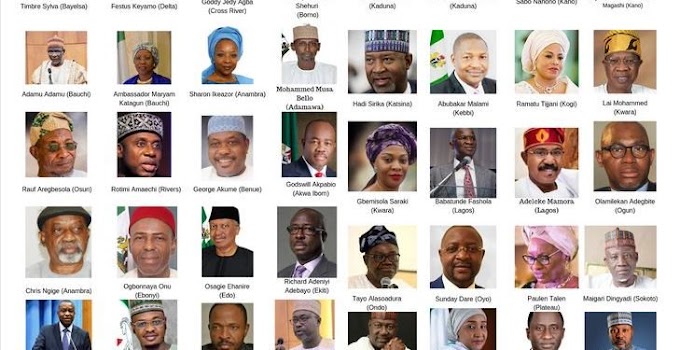e-Government: Using Internet Technologies To Deliver Public Services
May 04, 2019
0
Digital government, sometimes called electronic government (e-government), could help a government better interact with its citizens while providing painless way to navigate bureaucracy.
A digitally driven government often comes up with electronic initiatives that helps it operate and render services to its citizens more efficiently. One of the greatest gift a digital government can give its citizens is "electronic inclusion" which allows them to go online to perform almost every interaction they have with government.
The long queues and office paper documentations for national identity cards, driver's license, health insurance schemes and other related government services that requires people to either travel from point A to point B or wait for days and sometimes weeks before getting results are some of the challenges a digital government should address.
Just like the private sectors, dealing with the government should be as easy as shopping online. A digital government should always come up with electronic initiatives that makes delivery of services to the public seamless.
Digital government can be likened to a standing fan which blows air in a clockwise and anticlockwise manner. When a government invests in internet technologies, it does not only deliver to the citizens, it also cuts cost and save money. One of the major areas government can save cost is in the area of public awareness. If government agency websites are populated with problem solving content and officials online to interact with the citizens, it will save government huge money it would have spent in deploying officials from time to time. Government can achieve this by developing regulations for digital services which requires officials to provide answers to the public’s questions.
Another internet technology strategy government can use to improve digital experience as well as cut cost in the long run is by developing a database of answers capable of meeting the demands of the citizens rather than waiting for an official to come online or produce report.
Still on cutting cost, government can review its MDAs to check website(s) that can coexist with other websites and merge them. The United Kingdom adopted this measure in 2012, when the government merged the websites of all 25 ministerial departments and 385 other public agencies into a single portal, www.gov.uk, and it saved the government a huge sum of money. In first three years of operating the single portal www.gov.uk, the UK Treasury reported a saved taxpayers £3.6 billion (US$4.7 billion) in Naira N1,694,350,000,000.00 conversation as at April 5, 2019)
A government driven by internet technology, will not have problem building a system where its citizens can easily file their tax returns, vote in elections and register a birth or a new company or business online.
Unfortunately, one of the setbacks in running a digital government especially in Africa is the lack of widespread internet access not forgetting electricity.
Digital government, as awesome as it may appear still comes with its own challenges. An internet driven government which puts the information about its citizens, taxes, employment and health-care access into one easy-to-access site will not doubt become a target for hackers because it will be a jackpot for them.
However, a government that is ready to leverage internet technologies in delivering public service should be well aware of the risks. But in every risk, there can be a way out. Good news is that computer scientists are reportedly said to be developing cryptographic techniques called "Differential Privacy" to keep data secure. This technology is gaining massive popularity because it enables data to be accessed but still protects identity. Technically, with this technology, one can be allowed to query a collection of records, but cannot tell the difference between individual records. A good example is when someone finds out how many people claim a particular benefit, but could not pinpoint which people they are. The technicality is that, the computer calculates an answer, and then adds some statistical jargon to obscure the source.
One shortcoming of this technology is that it only works when numerous records are aggregated together, such that accuracy of results can be reduced.
“It doesn’t work everywhere, but it is extremely useful,” says Jaideep Vaidya, a computer scientist at Rutgers Business School in Newark, New Jersey.
Reports has it that the US Census Bureau has out plans in place to use differential privacy to protect the data it collects in the 2020 Census.
While some African governments may not be there yet, learning about this emerging internet technologies can help shape the way a government deliver services to its citizens. Just like the people interact on other digital services, they have the same expectations for government services and if those expectations are not met, it affects people’s perception of the quality of government.







